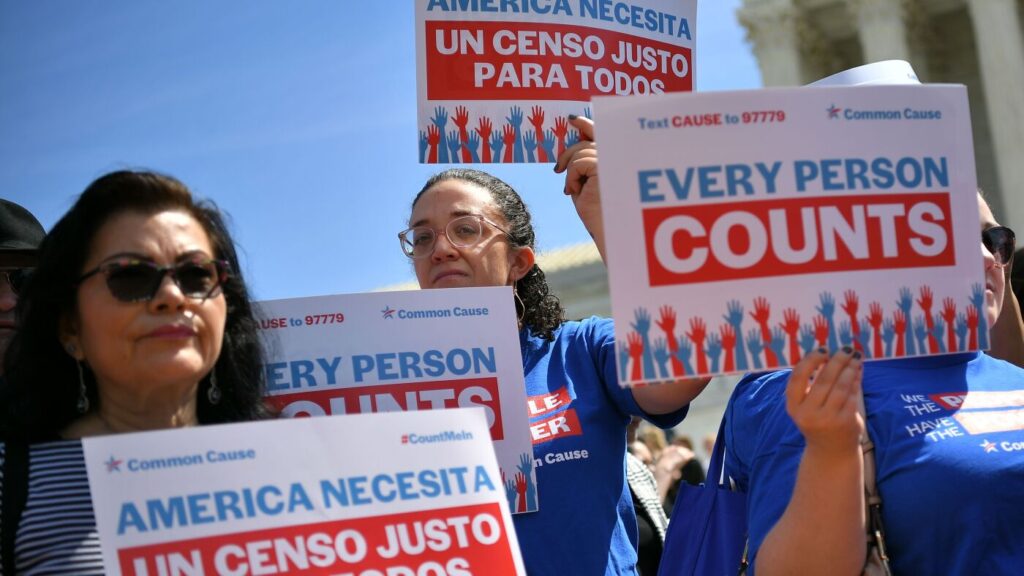Demonstrators rally outside the U.S. Supreme Court in Washington, D.C., in 2019 to protest the first Trump administration’s failed push to add a question about a person’s U.S. citizenship status to 2020 census forms.
Mandel Ngan/AFP via Getty Images
hide caption
toggle caption
Mandel Ngan/AFP via Getty Images
With preparations for the 2030 census already underway, President Trump said Thursday he has instructed his administration to start work on a “new” census.
In a social media post, Trump also called for an unprecedented exclusion of millions of people living in the U.S. without legal status.
The 14th Amendment requires the “whole number of persons in each state” to be included in a key set of census numbers used to determine how presidents and members of Congress are elected.
It’s unclear if Trump is referring to the regularly scheduled national head count in 2030 or an earlier tally.
Trump said he’s instructed the Commerce Department, which oversees the Census Bureau, to “immediately begin work” on a census using “the results and information gained from the Presidential Election of 2024.” It’s unclear why the election results would matter to the census.
The press offices for the White House, Commerce Department and Census Bureau did not immediately respond to NPR’s requests for comment.
While Article I of the Constitution has required a census every 10 years since 1790 for the once-a-decade redistribution of congressional seats, it’s not clear whether the results of a census taken years before 2030 can be used for reapportioning each state’s share of seats in the U.S. House of Representatives and votes in the Electoral College.
Trump’s latest push renews similar efforts from his first administration that sparked legal battles. The U.S. Supreme Court ultimately stopped a question about a person’s U.S. citizenship status from being added to 2020 census forms but declined to rule on whether people without legal status can be, for the first time in U.S. history, excluded by the president from apportionment counts.
Former President Joe Biden affirmed the longstanding practice of including the total number of persons residing in the states in those tallies with a 2021 executive order, which Trump revoked on the first day of his second term.
Using the census to ask about a person’s immigration status has yet to be tested by the Census Bureau.
But research by the bureau shows that using the once-a-decade tally by the federal government to ask the question “Is this person a citizen of the United States?” is likely to produce faulty self-reported data and discourage many households with Latino or Asian American residents from getting tallied in official population totals, which are also used for dividing up trillions in federal funding for public services in communities across the country.




